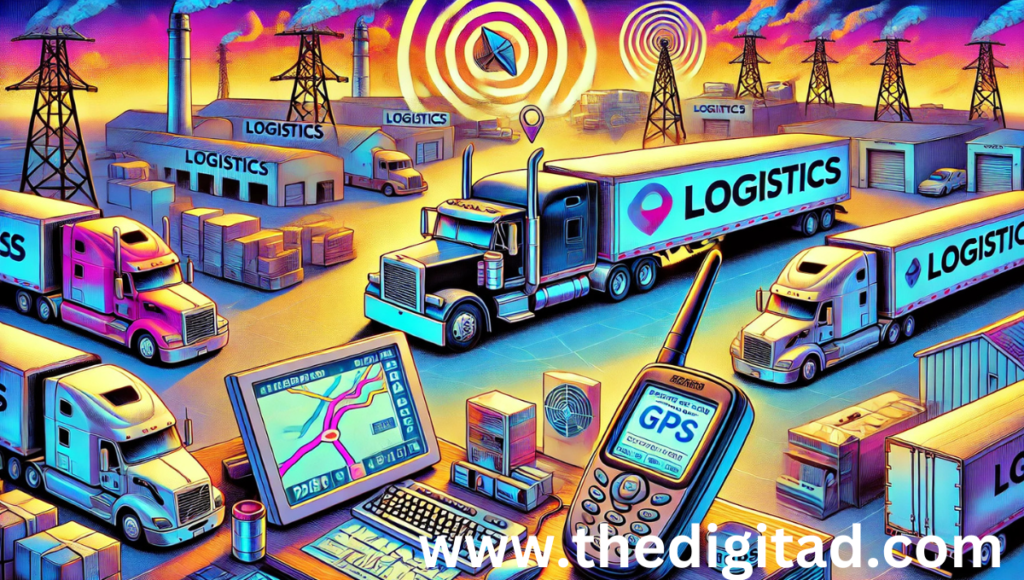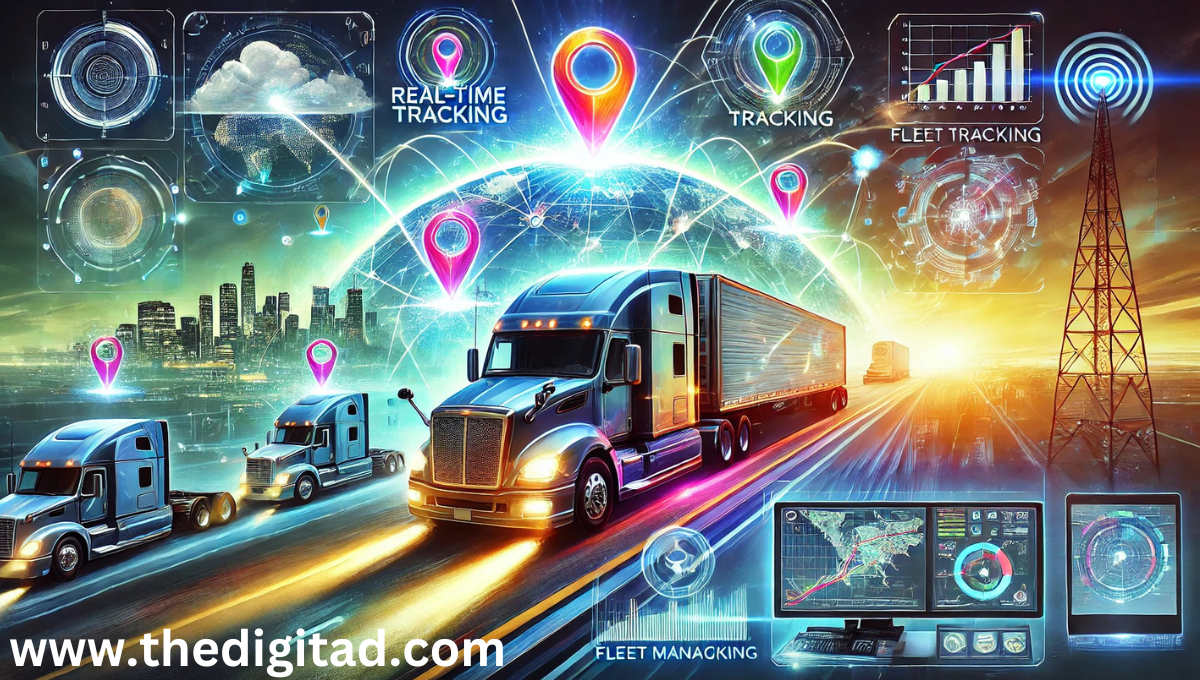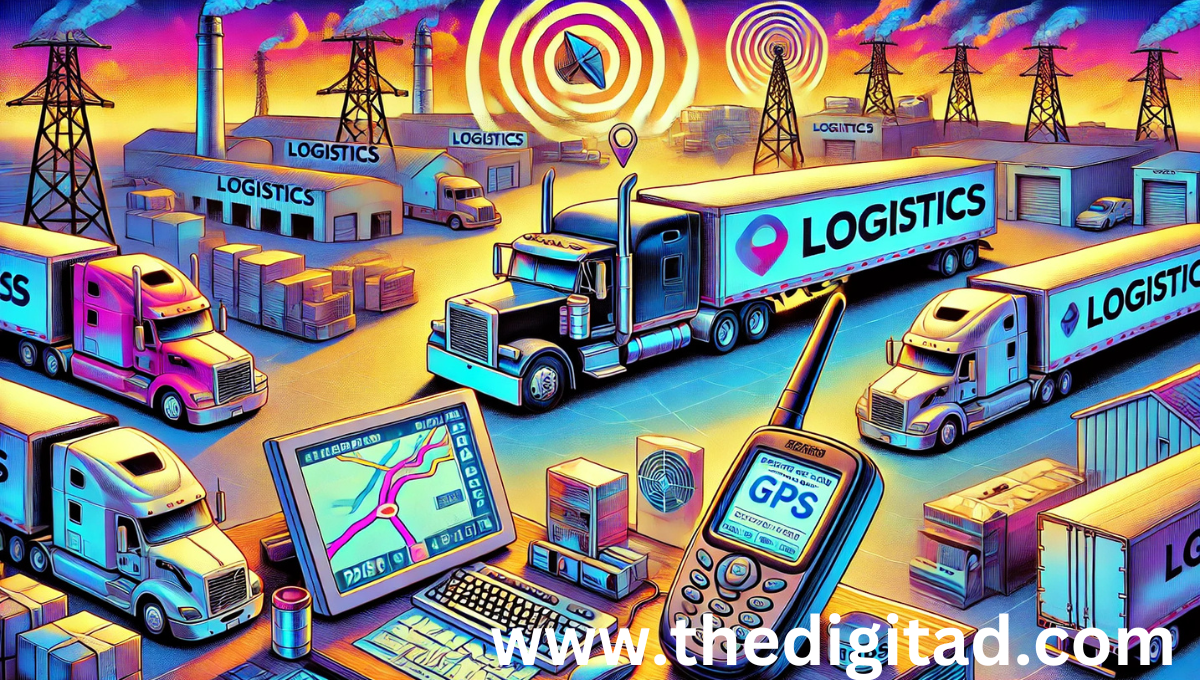How Did GPS Technology Change the Trucking Industry?
This is a path breaking invention which made everything different in the way that trucks moved about and are operated. The trucking companies are now able to track the vehicle location in real time with GPS, optimizing routes and also reducing the fuel cost. The driver can now get accurate turn by turn navigation for very little time loss in delivering their goods. Moreover, GPS helps fleet management by showing the driver behavior and vehicle performance parameters. Ultimately how did GPS technology change the trucking industry? Changed logistics for better by improving efficiency, safety, and customer satisfaction for everyone involved in the transportation sector.
Important Ways That GPS Technology Has Affected Trucking
1. Enhanced Route Optimization
In fact, route optimization is one of the greatest benefits of GPS technology for trucking. The drivers no longer rely on old maps nor guess. Modern GPS systems provide;
- Live traffic information: With the aid of GPS, drivers can move through traffic jams and other headaches, thus saving their time and fuel.
- Shortest route recommendations: Algorithms calculate the most efficient paths, reducing delivery times.
- Dynamic rerouting: GPS automatically provides alternative routes at the time of accident or road closure.
Experience efficiency in routing and saving time while enhancing operational costs for all trucking organizations.
2. Real-Time Tracking
The Real-Time tracking has changed fleet management. Such systems involve GPS devices that are installed in trucks to track vehicles at any point in time. This feature benefits both fleet managers and customers.
- Fleet management: Businesses will now be able to keep pace with many trucks at the same time.
- Customer transparent: Customers keep track of their shipments that enhance the trust and satisfaction they feel.
- Theft prevention: GPS tracking makes it easy to recover stolen vehicles quite quickly.
3. Better Fuel Efficiency
Fuel is the biggest single expense for almost all trucking companies. GPS technology contributes to significant fuel savings by;
- Reducing idle times by providing efficient routes.
- Avoiding traffic and unnecessary detours.
- Secure eco-friendly driving practices with real time feedback systems.
4. Enhanced Driver Safety
Safety is the first and most important priority in the trucking industry, and it is highly assisted by GPS technology with such features as;
- Accident alerts: Alerting of oncoming hazards while on the road with the help of GPS.
- Driver monitoring: This is where fleet managers will be able to know nice driving behavior like driving beyond speed limits or even in hard braking.
- Emergency assistance: Gps helps to share location of any person quickly so those not quite far will be reached in the event of an emergency.
5. Streamlined Compliance
Since the trucking industry is heavily regulated, adherence to rules, for instance, Hours of Service, is important.
- Electronic logging devices (ELDs): Record drivers’ hours automatically.
- Digital records: GPS systems maintain accurate logs, reducing paperwork and errors.
- Inspection readiness: Detailed GPS logs ensure trucks meet regulatory requirements
The Economic Impact of GPS in Trucking
Cost Savings
Trucking companies have significantly reduced costs by adopting GPS technology. Savings stem from;
- Lower fuel consumption.
- Less wear and tear happening on vehicles because of streamlined routes.
- Fewer delays and on-time deliveries.
Increased Revenue
Faster deliveries and better customer satisfaction directly impact revenue. Clients are more likely to choose companies offering real-time shipment tracking and reliable delivery schedules.
Challenges in GPS Adoption
However, these several benefits do come along with hurdles for the implementation of GPS technology in an organization.
- Initial investment: GPS systems can be costly to install and maintain.
- Technological learning curve: Drivers and managers may need training to use GPS tools effectively.
- Signal issues: Remote areas may experience weak GPS signals, impacting reliability.
The Evolution of GPS in Trucking
Past
The earliest GPS devices were standalone units with limited capabilities. These systems required manual updates and lacked real-time connectivity. Despite their limitations, they marked the beginning of a shift toward technology driven trucking operations
Present
Modern GPS systems are highly advanced, often integrated with smartphones and fleet management software. Cloud-based solutions ensure data accessibility and seamless updates, while AI enhances route prediction and analytics.
Future
The horizon of GPS in trucking appears to be even brighter. Edging ahead courtesy of progressive steps in IOT and AI, GPS systems are foreseen to get smarter and thus predictive.
Some future trends are as follows;
- Autonomous Trucks: GPS will serve as the navigator of self-driving trucks in maneuvering through complex environments.
- Advanced Predictive Analytics: To combine GPS with AI for more precise prediction of delivery timelines and maintenance requirements.
- Blockchain Integration: GPS can blend with blockchain in advancing its value as a security layer in the supply chain.
The Future of GPS Technology in Trucking
GPS is becoming more advanced with the evolution of technology. There are already many emerging trends such as the following.
AI Integration
AI-enabled GPS provides the ability to judge the traffic pattern and suggests a rerouting routing proactively.
IoT connectivity
GPS combined with Internet of Things devices would enable smarter fleet management.
Autonomous trucks
GPS has and will continue to play an integral role in the navigation of self-driving trucks, as the foundation for a new logistics era in construction.
Comparison: Before and After GPS
| Feature | Pre-GPS Era | Post-GPS Era |
| Navigation | Paper maps, manual routing | Real-time, dynamic routing |
| Fleet tracking | Manual check-ins | Live tracking via GPS |
| Fuel efficiency | High due to detours | Optimized through smart routes |
| Safety | Limited oversight | Enhanced through alerts and monitoring |
| Compliance | Manual logbooks | Automated ELD systems |
Pros and Cons of GPS in Trucking
Efficiency
Optimized routes save time and fuel within.
Safety
Minimize accidents through driver footage and alert of hazards.
Cost Reduction
Reduction of ongoing operational expenses.
Cons
Initial cost
GPS with installation and maintenance costs might be expensive.
Privacy Concern
Drivers may feel that they are being monitored unnecessarily.
Technology Dependence
Over reliance on GPS can cause issues if systems fail.
Case Studies of GPS Success
Amazon’s Logistics Efficiency
Amazon employs GPS technology to optimize its massive delivery fleet. Consequently, route planning via GPS promises faster deliveries and minimizes fuel costs for the company. This practice has greatly helped in keeping it competitive.
UPS’s ORION System
Amazon employs GPS technology to optimize its massive delivery fleet. Consequently, route planning via GPS promises faster deliveries and minimizes fuel costs for the company. This practice has greatly helped in keeping it competitive.
FAQs
1. How is GPS technology improving trucking operations?
GPS has optimized routes and fuel efficiency and tracked real time.
2. Is GPS technology expensive to implement?
It is in the long term that the future expenditures in fuel and maintenance will pay off, for not to forget about the cost of the initial investment that is high now.
3. Can GPS work in remote areas?
GPS systems may face signal challenges in remote locations, but advancements like satellite-based tracking are improving coverage.
4. How does GPS enhance safety?
GPS is used to issue warning alerts in the case of road hazards; monitors the behavior of the driver; allows for very quick sharing of location in emergencies.
5. What role is GPS playing in compliance?
GPS simplifies regulatory compliance through features like electronic logging devices and accurate digital records.
Conclusion
It has brought a great amount of change in the trucking industry by improving efficiency, safety, and customer satisfaction. Although there are still prevalent problems such as the costly and non-availability of signals, the advantages outweigh the disadvantages. As advancements continue, GPS will be a great foundation for innovation into the future of trucking.
Read more Articles about Tech Trends and other categories at thedigitad.com



















Post Comment